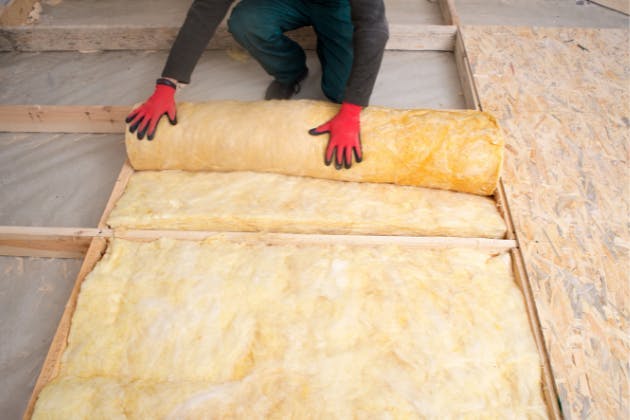Loft insulation is a critical component of energy-efficient home design, offering substantial benefits that extend far beyond mere temperature regulation. As energy costs continue to rise and environmental concerns grow, proper loft insulation has become an essential consideration for homeowners seeking to optimise their living spaces.
At its core, loft insulation acts as a thermal barrier, significantly reducing heat transfer between your living areas and the roof space. This simple yet effective measure can dramatically decrease energy consumption, leading to tangible cost savings and a reduced carbon footprint. Moreover, the benefits of loft insulation encompass improved indoor air quality, enhanced acoustic properties, and increased structural integrity of your home.
From preventing heat loss to increasing property value, we examine the compelling reasons why loft insulation should be a priority for every homeowner.

How Does Loft Insulation Work?
Loft insulation functions as a thermal barrier that prevents heat transfer between your living space and the external environment. It works by trapping tiny pockets of air within its fibres, creating a robust barrier that significantly reduces heat movement.
The most effective types of loft insulation include:
- Mineral Wool (Glass or Rock Wool): The most common option, offering excellent thermal properties and fire resistance
- Cellulose: Made from recycled paper products, providing strong environmental credentials
- Spray Foam: A premium solution offering superior insulation and airtightness
Proper installation is crucial for maximum effectiveness. The insulation should maintain its full thickness without compression, as squashing reduces its performance. For storage needs, install raised boarding to prevent compression of the insulation beneath.
The Main Benefits of Loft Insulation
Here are the top benefits of installing loft insulation:
1. Preventing Heat Loss
Up to 25% of a home's heat escapes through an uninsulated roof. Modern loft insulation, installed to the recommended depth of 270mm, can prevent most of this heat loss. This significant reduction in heat escape means your heating system works more efficiently and maintains consistent indoor temperatures.
2. Saving on Energy Bills
Properly installed loft insulation can reduce annual energy bills by £355 for a detached house and £180 for a mid-terrace property. These savings continue throughout the insulation's 40-year lifespan, making it one of the most cost-effective home improvements available.
3. Improving Air Quality
Quality loft insulation contributes to better indoor air quality by:
- Creating an effective barrier against external pollutants
- Reducing condensation and subsequent mould growth
- Preventing the infiltration of airborne allergens
- Maintaining optimal humidity levels
4. Reducing Noise Pollution
Loft insulation materials, particularly mineral wool and cellulose, provide excellent sound absorption properties. This reduces external noise from traffic and aircraft, impact noise from rain and hail, sound transmission between floors and overall ambient noise levels.
5. Pest Control
Properly installed loft insulation creates an effective barrier against common pests by sealing entry points and potential nesting areas, creating an inhospitable environment for rodents and insects and preventing damage to electrical wiring and structural elements.
6. Environmental Benefits
Installing loft insulation significantly reduces your home's environmental impact:
- Cuts CO2 emissions by up to 530kg annually for a typical semi-detached house
- Reduces overall energy consumption
- Decreases reliance on fossil fuels
- Supports national carbon reduction targets
FAQs
Call our loft insulation experts in South Wales
Contact our team for more advice and support regarding loft insulation. You can reach us at 01639790426 or 07852229017 or by sending us a message through our online contact form.


